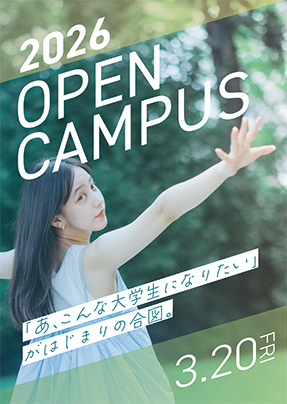Research Thesis
The following are selected Research Theses by graduates of the ILE: TESOL Program:
Please see the list below of student research completed in the ILE: TESOL Program:
- A Case Study of a Study Abroad Program to the Philippines, Athlekar Gayatri Ramesh (India),2024
- Anxiety and Fluency in Game-Based Language Learning, Alam Shaidul (Bangladesh), 2024
- Elementary School English Teachers in Japan's Understanding and Perception of Cooperative Learning Implementation, Hiromi Chugo (Japan), 2024
- Personal Learning Environments: Perspectives of Japanese Students, Arora Kriti (India), 2024
- Student Motivation to Take TOEIC: A Cross-Sectional Study of Soka University, Kadieva Tsvetomila Nikolaeva (Bulgaria), 2024
- Perceptions of Different Audio Types for L2 Shadowing Listening Practices, Gee Lian Ng (Singapore), 2023
- The Impact of Virtual Exchange on Japanese University Students, Eugene Hayford Addo (Ghana), 2023
- A Cross-Sectional Exploration of EFL Teachers’ Emotions, Emotional Labor, and Identity, Tomacder Rapunzel Ordoño (The Philippines), 2023
- Translanguaging Spaces in Japanese University EFL and EMI Classrooms, Tong Ke Hui (Singapore), 2022
- Students' Perception Towards Learning English Language in Sri Lankan Teacher-Centered Environment, Kuruppuapachchi Kajini Kaushala (Sri Lanka), 2022
- Language Mindsets and Capacities to Speak English at a Japanese University, Lin Yi (China), 2022
- Advice Negotiation in Intercultural Peer Tutorials at a Japanese University Writing Center, Marzona Alyssa Monica Paderon (The Philippines), 2022
- The Ideal L2self, Demotivation, and Remotivation of Japanese Science and Engineering Students, Zhang Luyuan (China) , 2022
- Undergraduate EFL Student Preference on Gamification Elements Based on Player Type Theory, Derrick Wong Yong Jie (Malaysia), 2021
- Listening Comprehension Problems Encountered by High School Students in a Vietnamese Rural Context, Nguyen Thi Phuong Thuy (Vietnam), 2021
- Arts Integrated Learning : Self-Expression and Safe Spaces in Indian Classrooms, Riya Kartha (India), 2021
- A Phenomenological Study on Nepalese EFL Teachers Perception on Differentiated Instruction, Samikshya Bidari (Nepal), 2021
- Implementation of Visual Novels to Enhance Reading Experience in the EFL Context in Japan, Iana Dudrova (Russia), 2020
- Students’ and Teachers’ Attitudes Towards Comprehensibility, Intelligibility, and Accentedness, Jasmine Lim Xin Yi (Singapore), 2020
- Evaluation of Pre-departure and Re-entry Sessions in a Short-term Study Abroad Program, Venessa Wallace (Jamaica), 2020
- A Study of Students' Self-esteem and Their Attitude towards the Content-based Classes at a Japanese University, Takanori Omura (Japan), 2020
- The Relationship between Willingness to Communicate in English and Affective Factors: A Qualitative Analysis of EFL Learners in Japan, Yuichi Miura (Japan), 2020
- A World Englishes Approach to Preparing University Students for Study Abroad, Samuel Youta Maus (Japan), 2020
- Evaluating the Effectiveness of Self-Access Centers in Fostering Students' Autonomy to Develop Speaking Skills, Agnes Maria Francis (Indonesia), 2020
- Case Study of The Exchange Program Between Soka University and University of Nairobi, Doris Wairimu Murungu (Kenya), 2020
- EFL Teachers' Beliefs and Instructional Practices for 21st Century Skills, Ei Leen Yap (Malaysia), 2020
- Pedagogical Skills Development of Pre-Service Teachers in their Teaching Practicum, Hidayat Polim (Indonesia), 2019
- FLA among NNS EFL PSTs throughout the Course of Their Teaching Practicum, Leelawut Petkongtong (Thailand), 2019
- The Approach to EFL Reading Education and Student Motivation, Ryan Lewis Schofield (United Kingdom), 2019
- Impacts of Multilingual Education in English Learning: Attitudes and Beliefs of Junior High School Teachers, Capati Ma Wilma (The Philippines), 2019
- Investigating Non-native English- Speaking Teachers' (NNESTs) Teaching Strategies, Nina Loretta Galindo (The Philippines), 2019
- An Analysis of Stakeholders' Challenges and Attitudes on a Japanese University EMI program, Jordan James Powell (United States), 2019
- Teachers' Attitudes and Their Usage of Digital Tools in Vocabulary Teaching, Yeong Yeap Wei (Malaysia), 2019
- Improving Japanese University Students’ Grammar Knowledge Related to Modal usage in EFL writing, S. Indika Shyamalie Wijayanayake (Sri Lanka), 2018
- Changes in Undergraduates' Beliefs in a Pre-service Teacher Training Program, Risa Hiramatsu (Japan), 2018
- Socio Economic Factors and Learner Motivation for English Language Learning in Sri Lanka, Nishanthi Dayarathna (Sri Lanka), 2018
- Howard Gardner's Multiple Intelligence and EFL, Prateek Sharma (India), 2017
- The Language Learning Beliefs and International Posture of Japanese University Students, Babar Ali Shah (Pakistan), 2017
- Self-regulated Learning of Japanese University Students in Second Language Acquisition, Kaori Takeuchi (Japan), 2017
- Teacher Perspectives of STELLAR Implementation in Singapore, Lin Mingying (Singapore), 2016
- English for Academic Purposes in High Schools In Ghana, Akwasi Boah-Sarfo (Ghana), 2016
- Investigating the Implicit Language Learning of Japanese Adult EFL Learners, Tokiko Hori (Japan), 2016
- Intercultural Communication in Japanese Learners of English Across Learning Contexts, Emiliano Bosio (Italy), 2015
- Investigating Malaysian Students’ Perceptions and Attitudes Toward the Various Accents of Malaysian English, Chui Li Leong (Malaysia), 2014
- Teaching and Learning Modals in the Japanese High School Context, Masayuki Takano (Japan), 2014
- Critical Thinking Skills and Teachers’ Questioning Behavior in a Japanese University EFL Context, Maho Sano (Japan), 2014
- Comparing Teacher-student Interactions in Content Classrooms in a Japanese University, Saki Inoue, (Japan), 2014
- A Comparison of Native and Non-native English-speaking Teacher Cognitions, Ramon Paras (United States), 2013
- Learners’ Anxiety in University EFL Classrooms: Causes and Teachers’ Reactions, Takanobu Ochiai (Japan), 2013
- Communicative Language Teaching in English at Japanese Junior High Schools, Masashi Otani (Japan), 2013
- Pragmatic Competence of Japanese University Students at Different Proficiency Levels, Toshihiko Arai (Japan), 2013
- Learner Autonomy, Learning Strategies, and Proficiency in the Japanese University Context, Keiko Muramatsu (Japan), 2012
- Characteristics of Students' Discourse in a Short English Language Training Program, Akemi Uno (Japan), 2012
- The Effect of Motivation and Proficiency on Strategy use of Japanese University Students, Kaori Matsumoto (Japan), 2011
- Relationships of L1 and L2 Reading and Writing Skills, Eri Fukuda (Japan), 2011
- Ideal L2 Selves of Japanese English Learners at Different Motivational Levels, Mitsuko Suzuki (Japan), 2011


